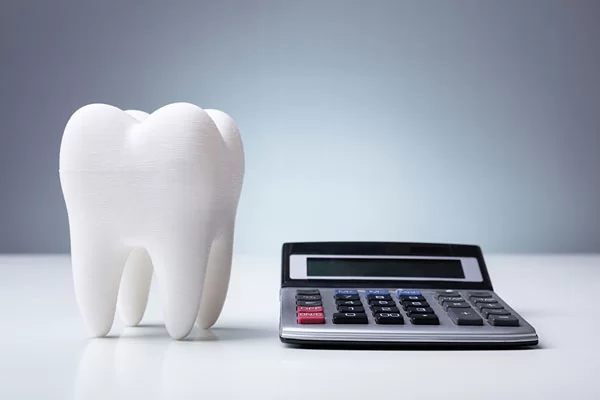Please note we may not offer this service at our office. Call (614) 771-6060 to learn more.
Comprehensive Guide to Zirconia Dental Crowns
Dental crowns are a widely used dental restoration method designed to restore the form, size, and function of a tooth that’s damaged or decayed. Zirconia dental crowns represent a relatively new category of crowns that have gained popularity in recent years, thanks to their remarkable strength, durability, and ability to mimic the natural appearance of teeth.
Our dentist in Hilliard, OH, provides a comprehensive look at zirconia crowns, sharing valuable insights about this modern type of dental restoration. To learn more, contact our Hilliard dental office at (614) 771-6060 today.

What Are Zirconia Dental Crowns?
Zirconia dental crowns are crafted from zirconium dioxide, a highly durable ceramic material. Known for their strength and natural tooth-like appearance, zirconia crowns are ideal for restoring both anterior teeth (front teeth) and posterior crowns (back teeth).
There are two primary types of zirconia crowns:
- Monolithic Zirconia Crowns: These crowns are milled from a single block of zirconia, offering exceptional durability for patients who grind or clench their teeth.
- Layered Zirconia Crowns: These combine zirconia’s strength with an additional porcelain layer, providing enhanced aesthetic qualities for highly visible teeth.
Benefits of Zirconia Crowns
Zirconia crowns offer several advantages compared to other crown materials:
- Exceptional Durability: Zirconia is a durable material resistant to wear, making it perfect for back teeth and high-stress areas.
- Natural Appearance: With a translucent quality similar to natural teeth, zirconia crowns seamlessly blend with your smile.
- Highly Biocompatible: Zirconia is metal-free and well-tolerated by the body, reducing the risk of allergic reactions or irritation.
- Precision Fit: Using advanced CAD/CAM technology, zirconia crowns are customized for a precise fit, ensuring a comfortable feel and healthy tissue response.
- Stain Resistance: Unlike other crown materials, zirconia crowns are highly resistant to staining, helping you maintain a brighter smile.
Zirconia Crown Drawbacks to Consider
While zirconia crowns offer many benefits, it’s important to understand their potential downsides:
- Higher Cost: Zirconia crowns are generally more expensive than alternatives like porcelain-fused-to-metal or gold crowns.
- Difficult Adjustments: Their hardness makes zirconia crowns challenging to modify after placement.
- Potential for Chipping: Although strong, they may crack under extreme pressure.
- Bonding Challenges: Achieving a perfect bond with zirconia can be trickier compared to other crown materials.

The Zirconia Dental Crown Process
1. Consultation and Preparation
During your consultation, our Hilliard dentist will assess your tooth damage and determine if a zirconia crown is the right solution. The tooth is then reshaped to make room for the new crown.
2. Impressions and Temporary Crown
Next, digital or physical impressions are taken to ensure the crown aligns perfectly with your surrounding teeth. A temporary crown may be placed to protect your tooth while your zirconia crown is fabricated at a dental lab.
3. Crown Placement
Once your zirconia crown is ready, your dentist will carefully place and bond it onto the prepared tooth. Adjustments are made to ensure it matches your bite and natural appearance.
4. Post-Placement Care
Caring for zirconia crowns is straightforward:
- Brush and floss daily to prevent plaque buildup.
- Avoid chewing on hard objects (ice, pens) to prevent chipping.
- Attend regular checkups at our dentist’s office to ensure the crown remains in good condition.
With proper care, zirconia crowns can last 10 to 15 years or longer.
Zirconia Dental Crown Cost
The cost of zirconia crowns typically ranges from $1,000 to $2,500 per tooth. Several factors influence the final price:
- Geographic Location: Costs may be higher in urban areas like Columbus or Dublin.
- Dentist’s Experience: Highly skilled dental professionals may charge more for their expertise.
- Quality of Materials: High-quality zirconia and dental lab craftsmanship affect pricing.
- Additional Procedures: Treatments like root canals or dental implants can increase overall costs.
- Dental Insurance: Some insurance plans may cover part of the cost, depending on your policy.
For a personalized estimate, call our Hilliard office at (614) 771-6060.

Frequently Asked Questions
Are zirconia crowns better than porcelain?
Both zirconia and porcelain crowns have their own unique set of advantages and disadvantages. Zirconia crowns are generally considered to be stronger and more durable than porcelain crowns, which makes them a better choice for patients with bruxism (teeth grinding) or other conditions that can cause excessive wear and tear on the teeth.
How long do zirconia crowns last?
When properly cared for, a zirconia crown can last 10 to 15 years. The lifespan of a zirconia crown can vary depending on factors such as the patient’s oral health and hygiene habits, their bite and chewing patterns, and the quality of the crown itself.
Do zirconia crowns look like real teeth?
Yes! Zirconia crowns offer a natural appearance due to their high translucent zirconia composition and ability to mimic enamel’s light-reflecting properties.
Can zirconia crowns stain or turn yellow?
Zirconia crowns are highly resistant to stains. However, poor oral hygiene or habits like smoking can impact their appearance over time.
See If Zirconia Restorations Fit Your Needs
If you’re seeking a durable material with a natural appearance, zirconia dental crowns may be the perfect solution. Whether you have a damaged tooth or need a restoration for dental work like a bridge restoration, zirconia crowns combine both structural and aesthetic qualities.
Call our Hilliard office today at (614) 771-6060 to schedule your consultation. We proudly serve patients in Columbus, Dublin, Upper Arlington, Grove City, Westerville, and surrounding areas!






